With more than 300 million firearms owned by U.S. civilians and at least 100 million guns produced by U.S. manufacturers in the last 25 years, the U.S. has the highest rate of gun ownership in the world. With such a large market, the U.S. gun business is extraordinarily lucrative, generating around $8 billion in annual new small arms sales.
Glock handguns originate in Austria, Beretta is an Italian creation, and Uzi submachine guns come from Israel, but the bulk of firearms in the U.S. come from domestic factories. And almost half the guns made in America are produced by three companies: Sturm, Ruger & Co.; Smith & Wesson; and Freedom Group. Combined, they sold about 40 million firearms over a quarter-century.
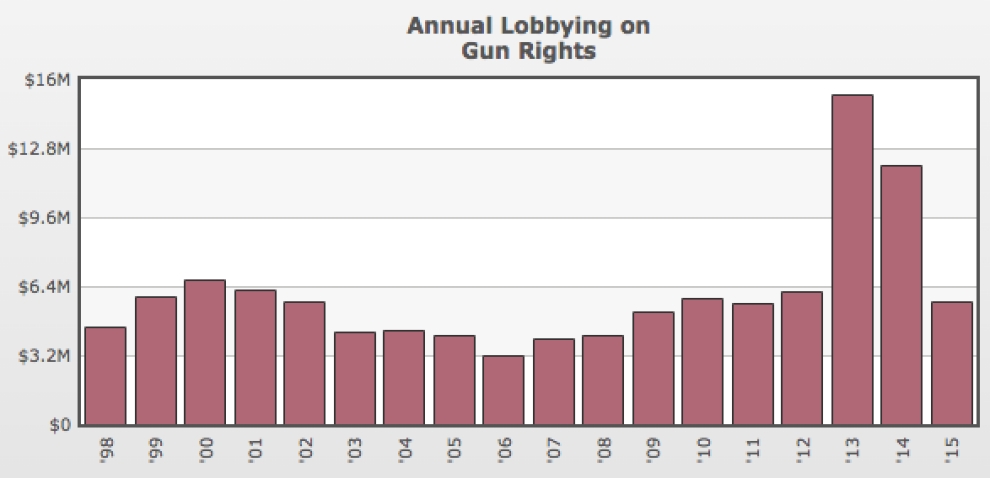
A substantial percentage of the resources for the biggest lobbying groups — including the NRA, Safari Club International, Gun Owners of America and the National Association for Gun Rights — comes from gun manufacturers. The NRA, for example, receives some $10 million a year from gun companies, according to a 2013 report by the Violence Policy Center, a Washington D.C.-based nonprofit.
There have been 352 mass shootings in 2015 alone, including Wednesday's in San Bernardino that killed at least 14 people, and advocates for gun control blame spending by pro-gun groups for Congress's failure to tighten laws on gun ownership. These groups spent about $12 million on lobbying in 2014, and in the 2014 federal election cycle, gun rights groups spent $3.7 million, nearly all of that on Republicans.
Despite the public outrage over gun violence since the 2012 shootings in Sandy Hook, gun companies’ business has boomed this year. Investors generally expect sales jumps when politicians call for tougher gun laws, and the stocks of the two publicly-traded gun stocks have rallied. One has nearly doubled in price in 2015, while the other is up by over 50 percent. Here is a close look at the three largest gun makers in the U.S.
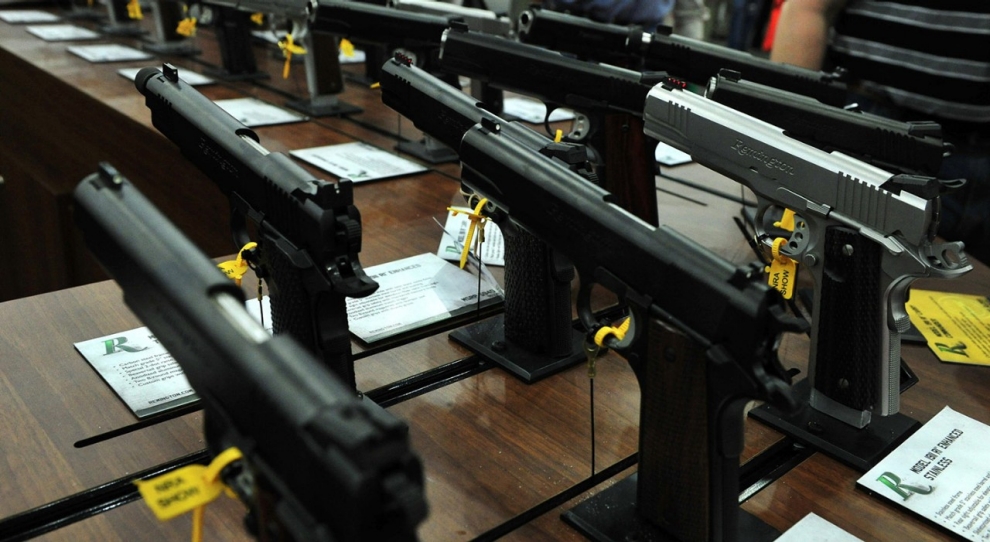
Sturm, Ruger & Co.
This Connecticut-based company sells pistols, revolvers and rifles under the Ruger brand, for “hunting, target shooting, collecting, self-defense, law enforcement and government agencies,” according to its website. Some of its best-known products are Mini-14 rifles and Redhawk revolvers.
In 2012, Ruger launched a campaign to sell 1 million guns and pledged to give $1 from each purchase to the NRA, an organization that represents manufacturers, as well as gun owners, retailers, activists and its 4 million members.
Ruger achieved record sales of $588 million in 2013. Sales dropped in 2014 on declining demand and competitive pricing but have rebounded in 2015.
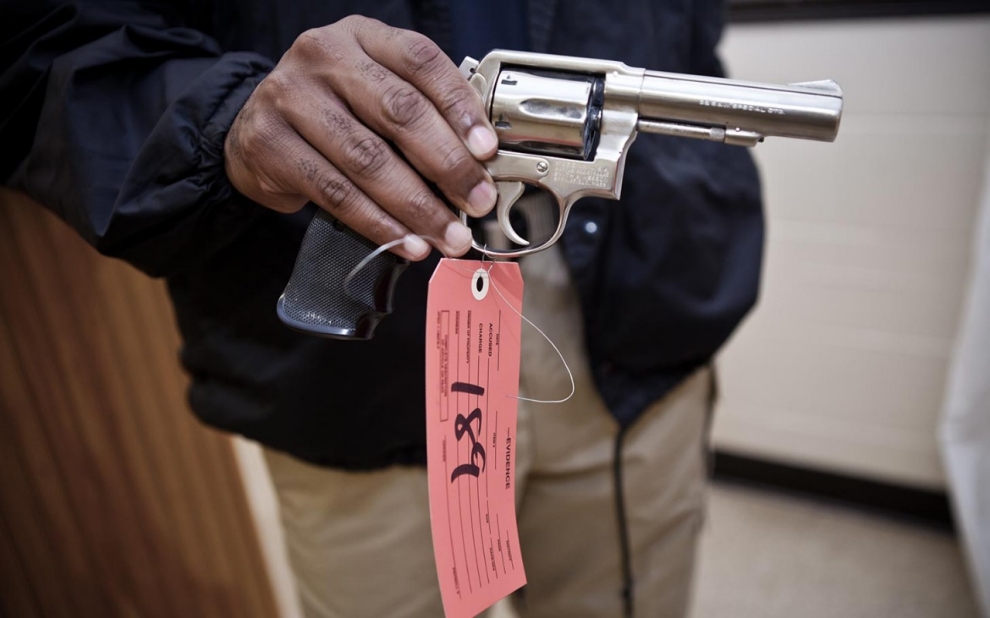
Smith & Wesson Corp.
Horace Smith and Daniel Wesson founded this company in Connecticut in 1852, selling the Volcanic rifle initially and then revolvers in the Civil War. Now based in Springfield, Mass., the company makes the 44 Magnum revolvers used by Clint Eastwood in the “Dirty Harry” films.
Like other manufacturers, Smith & Wesson has benefited in recent years from an increase in sales to young people, women and city dwellers purchasing guns for protection and recreational target shooting. Traditional gun buyers tended to be older, white, male and interested in weapons for hunting. The company’s sales reached a record high of $626 million in 2014, a 50 percent increase over 2010. In 2015, first-quarter profits rose significantly to $17.7 million, partially boosted by an increase in accessory sales.
Smith & Wesson’s stock price has doubled from around $9 to about $18 per share since January. The company’s lobbying spending peaked at $360,000 in 2011; it decreased to $70,000 last year.
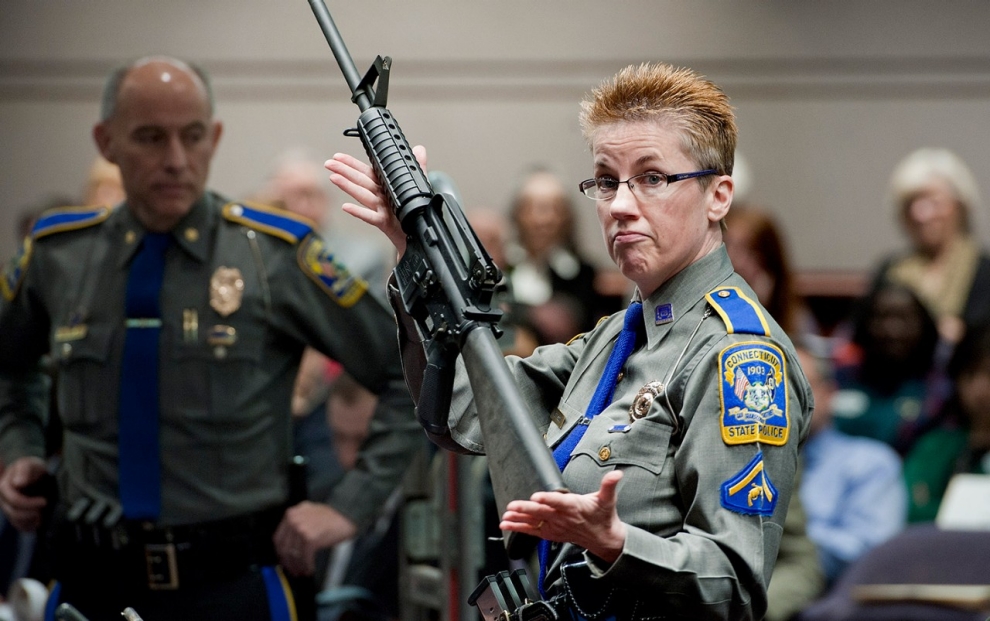
Freedom Group
As the parent company of Bushmaster, maker of the rifle used by Adam Lanza in the 2012 Newtown massacre, Freedom Group, a privately-held conglomerate, has been under intense scrutiny. Cerberus Capital Management, the New York-based private equity firm that owns Freedom Group, has faced public pressure to unload its stake in the company.
George Kollitides II, the CEO, sits on the nominating committee of the NRA. The company also owns Remington Outdoor Co., which bills itself as “America's oldest factory that still makes its original product: guns.”
Remington’s profits surged 52 percent in the first year after Newtown, as consumers rushed to buy guns, fearing stricter laws. But since then, the company has struggled. Known for shotguns and rifles, Remington has reeled from a major 2014 recall, with the company promising to replace millions of triggers on reports of false firings. Last year, revenue dropped 20 percent to $1 billion, as analysts say rifle demand is less robust than demand for handguns.
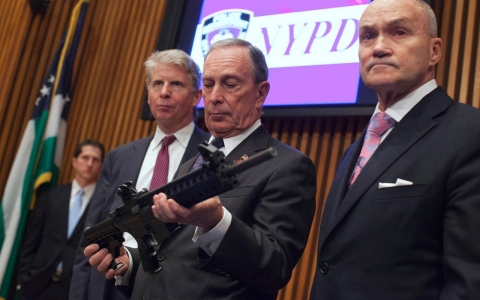
Initiative's target is the powerful pro-gun lobby, which pumps millions of dollars into the US election cycle
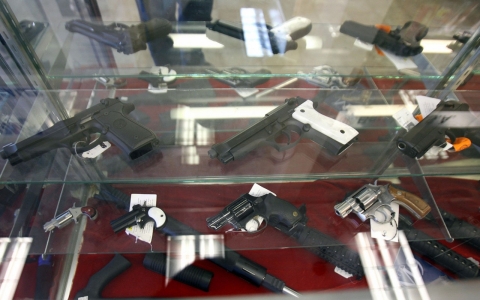
A UC Davis professor received an email from leading US gun rights lobby aiming to discredit his work
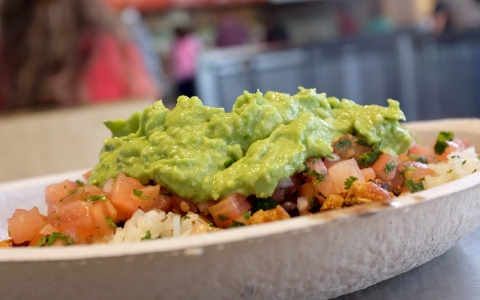
But gun rights advocates have no chips on their shoulders over request to lay down arms
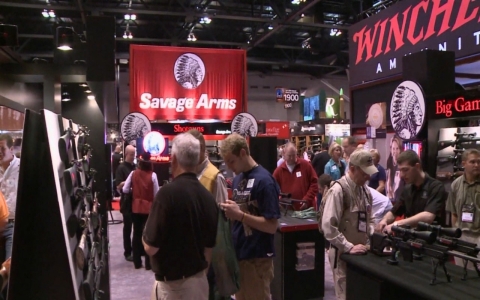
New technology hopes to reduce the number of accidental deaths. Jacob Ward reports
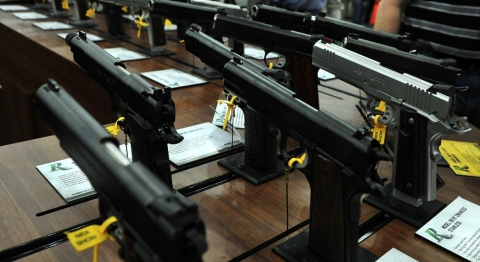
The National Rifle Association wants Congress to require concealed weapons permits be recognized nationally






Error
Sorry, your comment was not saved due to a technical problem. Please try again later or using a different browser.